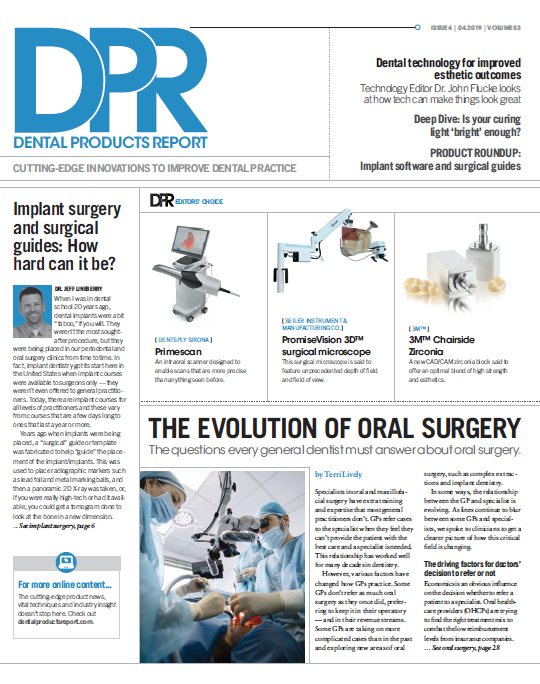When the ‘patient is always right’ policy goes wrong
How to treatment plan when your patient has his or her own ideas.

You have a diagnosis. You have a treatment plan. You have a referral to an oral surgery specialist who can help make it happen.
You have everything you need to treat your patient - except for his or her treatment acceptance. It turns out, your patient has his or her own ideas.
Here’s what to do when your policy of “the patient is always right” goes wrong.
Find another dentist
“In my seminars, I say, ‘Your patient is always right; they just don’t have to be your patient.’ I didn’t invent that, but I think it’s a fabulous statement,” says Mark E. Hyman, DDS, MAGD, an adjunct full professor at the University of North Carolina School of Dentistry and an international lecturer.
Trending article: 3 pieces of infection control equipment you're using improperly
Young dentists have a harder time turning patients away, however, particularly when they’ve invested hundreds of thousands of dollars in complicated, high-tech equipment. Dr. Hyman teaches his young doctors to get out of debt as soon as possible.
“It’s tough to treatment plan with integrity if you’re thinking, ‘I’ve got to pay for $400,000 of dental school,’” Dr. Hyman says. “If a patient asks you to do something that is not in your skill set or not in their best interest, it’s okay to say, ‘Let me help you find somebody that will do that for you.’”
Jason Goodchild, DMD, director of clinical affairs for Premier Dental Products Company, says the rapport that you’ve built up with these patients can help you to reassure them about your plan to refer. He tells his patients that the treatment they need is something the specialist does all day, every day.
“I would say things like, “Well I could probably do this, but it might take me an hour, and it will take the other guy 15 minutes,’” Dr. Goodchild says.
Stay within your comfort zone

Dr. Goodchild’s advice for dentists is that through self-reflection, if you feel like you can do what the patient wants, then that’s one thing, but don’t be badgered into doing something.
“I don’t care if it’s like, “Oh doc, I know this tooth is broken down, but can’t you put a filling in it to make it look like a tooth?’” Dr. Goodchild says. “You’re trying to please the patient. At the end of the day, all that ever does is go badly. So, you do the right thing, and you’ll never have to explain why it didn’t meet patients’ expectations.”
Edward Kusek, DDS, is a private practice dentist in Sioux Falls, South Dakota, with 34 years of experience. He tells dentists they have to stand their ground when the patient wants something that will be detrimental.
“You have got to be able to stick up for yourself,” Dr. Kusek says. “It’s hard for the younger dentist to understand because they have to keep the production up. Sometimes they may force themselves to do things that they’re not ready to do right away.”
Knowing what feels comfortable to you is vital so you can keep your practice within your comfort zone. When doctors get outside their comfort zone, Dr. Goodchild says, in his experience, that’s when the bad stuff happens.
More from the author: How to set proper denture expectations
Manage expectations
Sometimes the patient-is-always-right policy goes wrong after the treatment is done. Instead of focusing on how far the case has come and the level of improvement the treatment has provided, the patient is concentrating on other details and feeling unhappy.
Sarah Jebreil, DDS, AAACD, a private practice dentist in Newport Beach, California, who specializes in cosmetic dentistry, says having a physical record of where the patient started can be helpful in these situations.
“Documentation is huge,” Dr. Jebreil says. “A lot of patients forget what they came in looking like or what their chief concern was. The photo brings them back to reality.”
The visual record is often sufficient to manage the patient’s expectations. However, some patients are never going to be satisfied. Dr. Jebreil says you should make your peace with that. She also recommends talking to the patient’s previous dentist to get an idea of his or her personality type.
“Any redo case, there’s already so much baggage that comes along with it, and there are just some people that are never going to be happy,” Dr. Jebreil says. “You have to be okay with that.”
